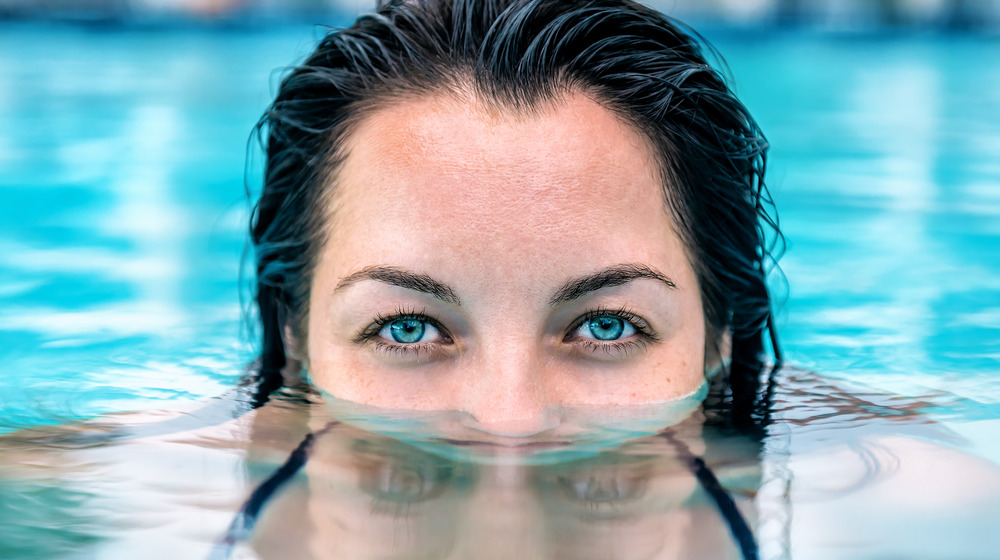Think Twice Before You Open Your Eyes Under Water. Here's Why
Many people fear the unknown of deep water. To protect ourselves from any potential harm, whether it be the pinch of a crab or just the stubbing of a toe on a forgotten pool toy, it's understandable that some of us prefer to keep our eyes open while swimming underwater. However, without proper protection, we are leaving our eyes vulnerable to irritation, redness, or even infection.
Of the milder side effects you might experience, stinging and discomfort is not uncommon after swimming in a chlorinated pool (via AZ Central). Depending on the pH level, it's true that too much contact with chlorine can cause eye irritation, but it's not the sole cause of it. Pools contain relatively low levels of chlorine in order to kill potentially harmful toxins. However, it's not enough to combat the natural byproducts of our bodies. Our body oils and fats become dispersed into the water and have been known to cause eye sensitivity and irritation.
In addition, opening your eyes underwater can leave you open to injury. According to The Vision Council and National Association for Sport and Physical Education, studies have found that on average, a patient is treated at the emergency room every thirteen minutes for an eye injury as a result of a sports accident. An accidental foot to the face from a fellow swimmer or a scratch from debris floating around in the pool has swimming ranked as one of the riskier eye-related physical activities when it comes to sports.
When we open our eyes under water we subject ourselves to irritation, injury, or infection
Of the more serious potential consequences of swimming with your eyes open, infection and vision damage are among them. Microorganisms and bacteria exist within all bodies of water. Whether it's the above-ground pool in your backyard or a salt water ocean, they have the potential to cause serious infection (via Crystal Vision Center). Certain pathogens can even cause conditions such as Acanthamoeba corneal infection which can result in blindness. Additionally, if you wear contact lenses, bacteria then has the opportunity to become stuck within the lenses themselves (via Berks Eye Physicians & Surgeons).
In order to safeguard your ocular health, experts stress that it's important to properly protect your eyes while swimming. Wearing a pair of well fitted goggles or keeping eyes shut while swimming underwater is suggested by medical experts. Additionally, be sure to discard contact lenses that come in contact with the water. In doing so, you can continue to enjoy a relaxing swim as the weather warms up, while still preserving your vision.


